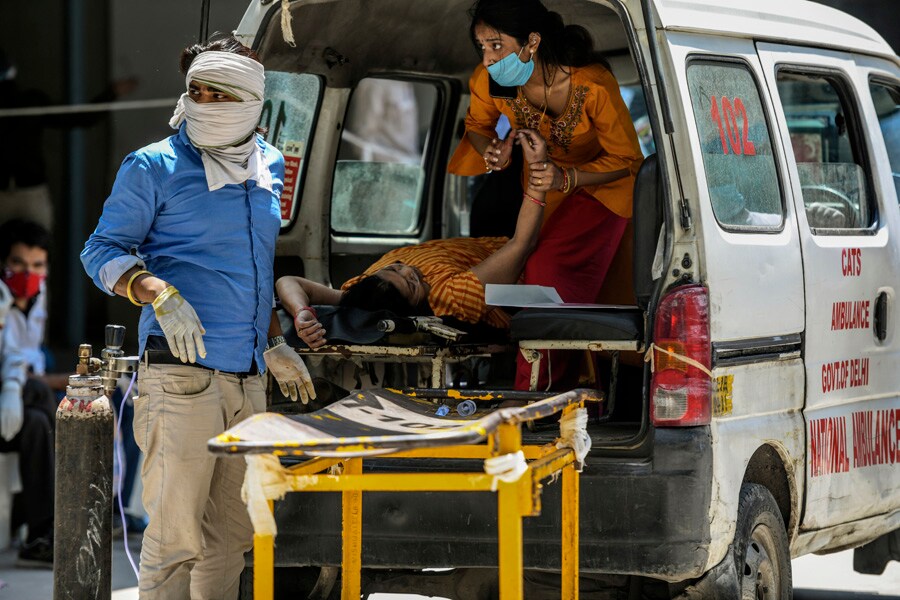
Amid India's second virus wave, the world responds distress call
Facing increased pressure, the White House said that it had removed impediments to the export of raw materials for vaccines and would also supply India with therapeutics, test kits, ventilators and personal protective gear
 A relative waits with a COVID-19 patient inside an ambulance outside a hospital in Delhi, India, April 24, 2021. (Atul Loke/The New York Times)
A relative waits with a COVID-19 patient inside an ambulance outside a hospital in Delhi, India, April 24, 2021. (Atul Loke/The New York Times)
Oxygen generators from Saudi Arabia and the United Arab Emirates. Raw material for coronavirus vaccines from the United States. Millions in cash from companies led by Indian American businessmen.
As a second wave of the pandemic rages in India, the world is coming to the rescue.
But it is unlikely to plug enough holes in India’s sinking health care system to fully stop the deadly crisis that is underway, and the health emergency has global implications for new infections worldwide, as well as for countries relying on India for the AstraZeneca vaccine.
“It’s a desperate situation out there,” said Dr. Ramanan Laxminarayan, the founder and director of the Center for Disease Dynamics, Economics & Policy, adding that donations will be welcome, but may only make a “limited dent on the problem.”
In the early months of 2021, the government of Prime Minister Narendra Modi acted as if the coronavirus battle had been won, holding huge campaign rallies and permitting thousands to gather for a Hindu religious festival.
©2019 New York Times News Service




